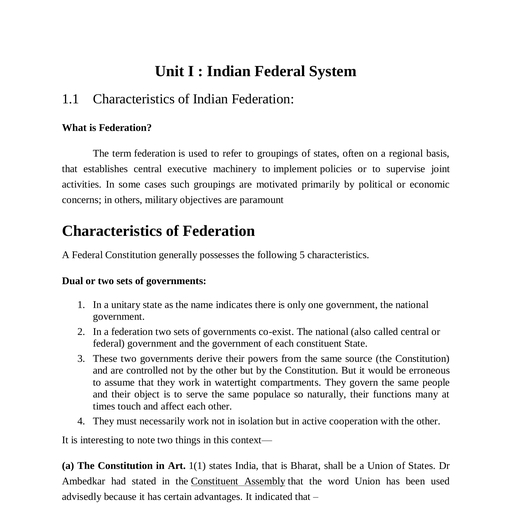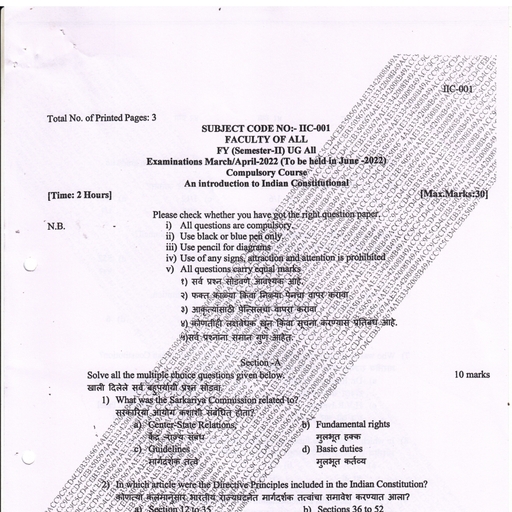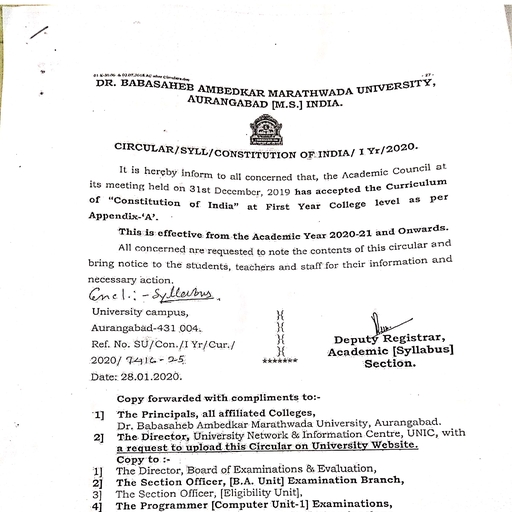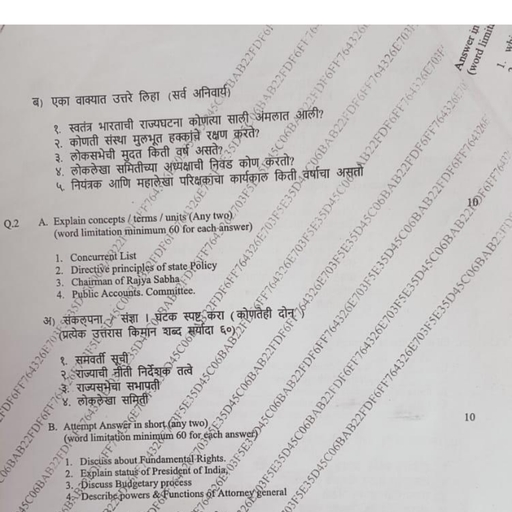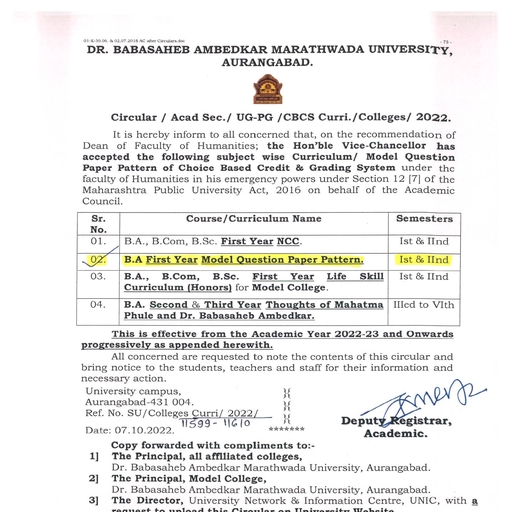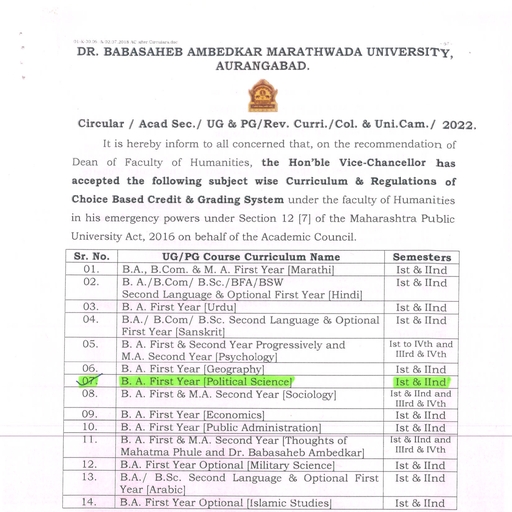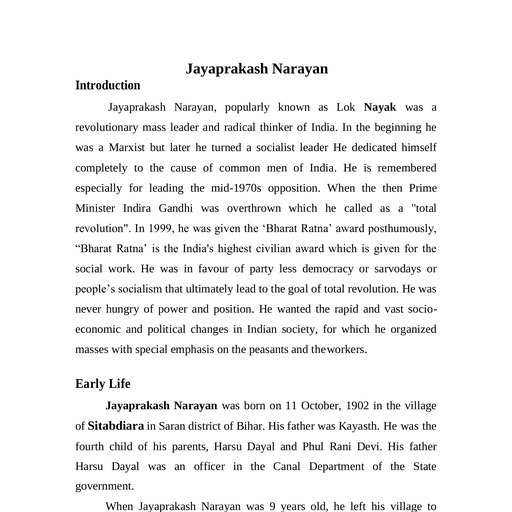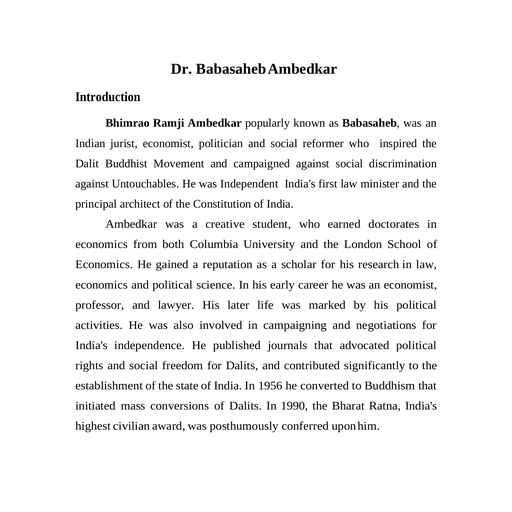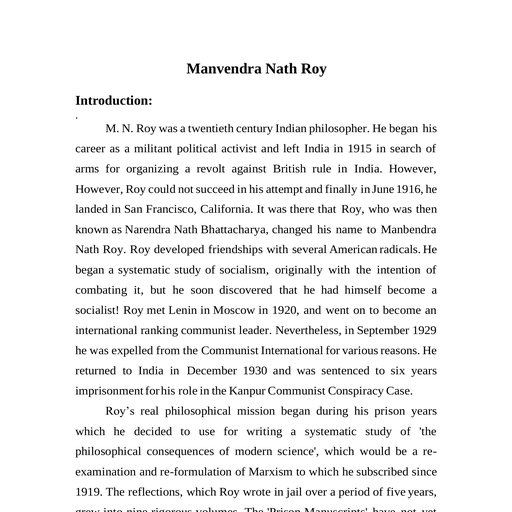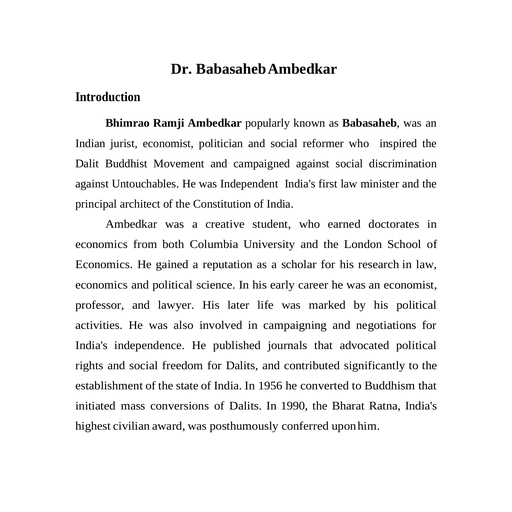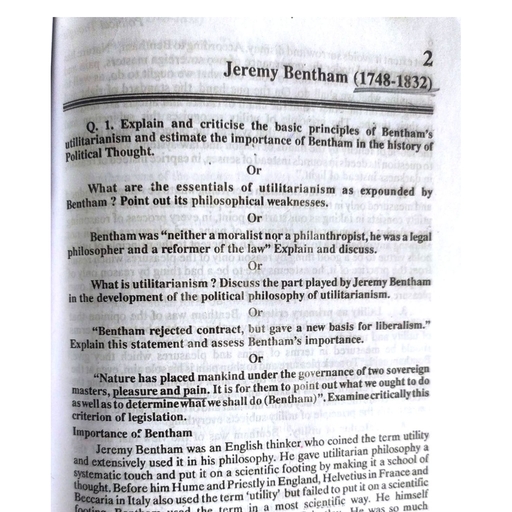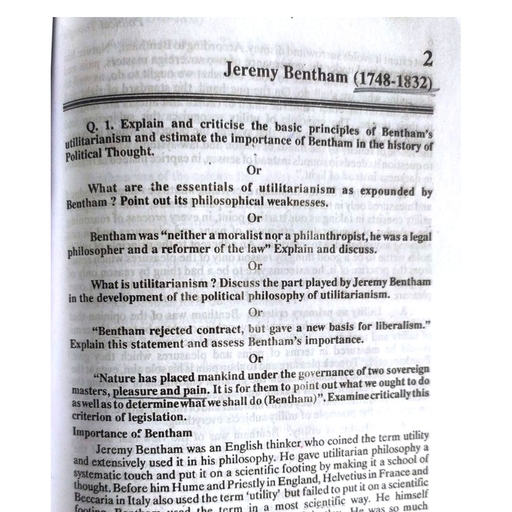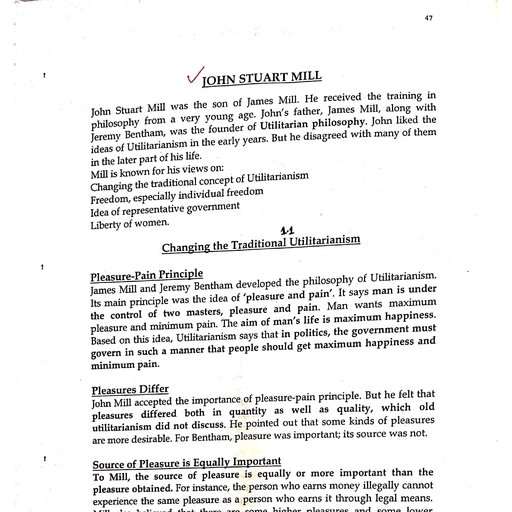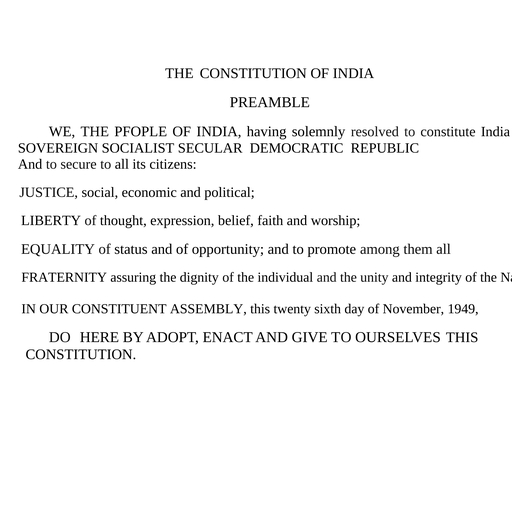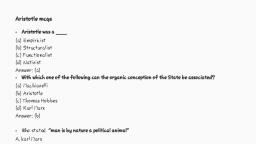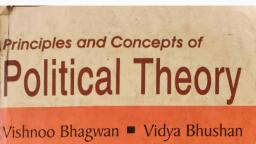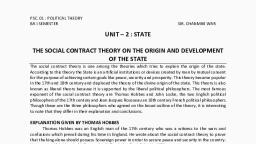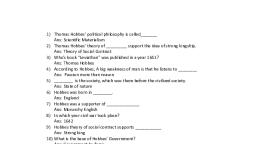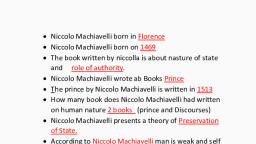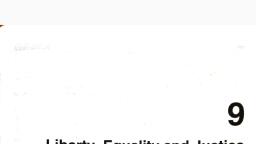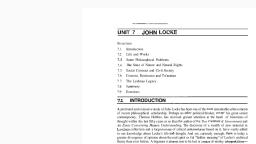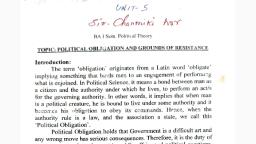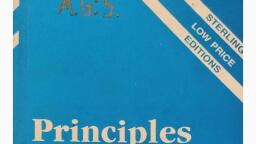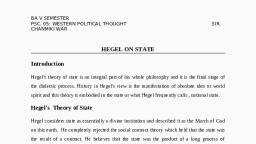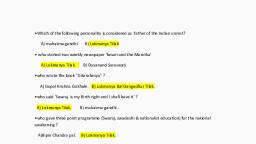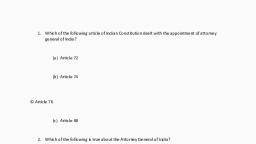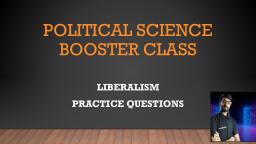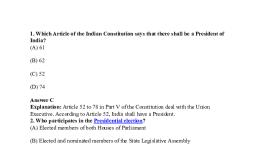Page 1 :
MULTIPLE CHOICE QUESTIONS on John Locke, 1. Locke was a philosopher who belonged to :, a) England, , b) France, , c) Switzerland, , d) Germany, , 2. Locke has been called as the child of :, a) French Revolution, , b) Industrial Revolution, , c) Glorious Revolution, , d) Reformation, , 3. Locke advocated his theory in :, a) 12th century, , b) 16th century, , c) 17th century, , d) 18th century, , 4. Latin for ‘BLANK SLATE’, the term describes John locke’s idea of the human mind at birth :, a) in vino veritas, , b) tabula rasa, , c) arjuna, , d) bindu, , 5. ‘TABULA RASA’ is the term coined by :, a) John Locke, , b) Plato, , c)Thomas Hobbes, , d) Aristotle, , 6. Which one of the following did not contribute in the consolidation of power of the kings in modern state during 16th and, 17thcenturies?, a) Desire of the people to have strong monarchy, b) Resentment against church, c) Resentment against feudal system, d) Conflict between the church and the state, 7. The three most prominent exponents of social contract theory were:, a) Austin, Bodin and Hobbes, b)Hobbes, Locke and Rousseau, c)Maclver, Laski and Rousseau, d) J.S Mill, Adam smith and Hobbes, 8. Locke envisages :, a) One contract-Social Contract, b) Two contracts-Social and Governmental
Page 2 :
c) Three contracts-Social, Economic and Political, d) One contract-Governmental, 9. Locke was in favour of :, a) Absolute monarchy, , b) Dictatorship, , c) Constitutional monarchy, , d) Republic, , 10. Essay ‘CONCERNING HUMAN UNDERSTANDING’ was written by :, a) Milton, , b) Locke, , c) Rousseau, , d) Plato, , 11. Locke propounded his theory of social contract in the book entitled :, a) Lectures on Jurisprudence, b) Two treatises of Civil Government, c) Social Contract, d) Representative Government, 12. John Locke wrote this essay to discuss knowledge and its acquisition :, a) An essay on ‘Natural rights’, b) An essay ‘Concerning Human Understanding’, c)An essay on ‘Civil rights’, 13. John Locke wrote this book around 1690 to explain his opposition to the divine right of kings and uphold his version of the, social contract theory :, a) The Prince, , b) Leviathan, , c) Two treatises of Government, , d) The Social contract, , 14. John Locke wrote these essays to claim that there is a natural law that tells people what is right and wrong and that this law is, learned by experience, and is not innate :, a) essays on the laws of nature, b) essays on Human nature, c) essays on the state of nature, d) essays on Natural right, 15. How many treatise did John come up with :, a) One, , b) Two, , c) Three, , d) Four, , 16. John Locke is important for the development of the idea that :
Page 3 :
a) Men have natural rights like life, liberty and property, b) Men must peacefully change their government through voting, c) Powers in the government should be divided into branches, d) Monarchies are the most effective form of government, 17. According to John Locke, your natural rights include :, a) Education, privacy and security, b) Clothing, food and shelter, c) Freedom, work and protection, d) Life, liberty and property, 18. According to Locke in the state of nature man was :, a) uncivilized, , b) nasty and brutish, , c) peace loving, 19. According to Locke people in the state of nature had :, a) certain duties but no rights, b) certain rights only, c) both rights and duties, d) neither rights nor duties, 20. According to Locke, the state of nature was ;, a) A period of lawlessness, b) A period of peace and reason, c) A period of constant warfare, d) A period of peace in certain areas and war in other areas, 21. According to Locke, people in the state of nature enjoyed only :, a) Divine rights, , b) Natural rights, , c) Legal rights, , d) Religious rights, , 22. How did John make a difference ?, a) helped people live a nice life, b) helped people believe in life ,liberty , justice and their rights, c) did nothing, 23. According to Locke the people in the state of nature :
Page 4 :
a) were governed by the laws enacted by the sovereign, b) were governed by the laws enacted by the government, c) were governed by the laws of nature, d) had no laws at all, 24. According to Locke, state originated because :, a) Nasty man was to be crushed, b) Private property came as a serpent, c) There was need to interpret laws, d) None of the above reasons, 25. According to Locke sovereign of the civil state in the beginning was :, a) Elected, , b) Nominated, , c) Sent by God, , d) A high priest, , 26. According to Locke’s sovereign the main responsibility was :, a) To protect the property of the people, b) To collect land revenue, c) To maintain good transport system, d) To encourage formation of associations, 27. Locke’s sovereign was :, a) above all laws, b) bound by the laws given by him, c) main source of original laws, 28. Which of the following is not correct :, a) Hobbes man was nasty, b) Rousseau’s man was noble savage, c) Hobbes social contract was bi-lateral, d) locke’s social contract was bi-lateral, 29. The state of nature was substituted by :, a) Civil society, , b) Anarchy, , c) Lawlessness, , d) Police state, , 30. According to exponents of theory of Divine Origin of the state the kings derived their authority from :
Page 5 :
a) God, , b) people, , c) Constitutional monarchy, , d) Church, , 31. Who of the following said that in the state of nature hands of all were against one and hand of one against all ? :, a) Hobbes, , b) Locke, , c) Rousseau, , d) Marx, , 32. Pick up one, which is not connected with the origin of the state ?:, a) Population, , b) Territory, , c) Industry, , d) Religion, , 33. Which one of the following is not a contributory factor in the growth of the state, according to Historical theory ?, a) Religion, , b) Economic factor, , c) Political consciousness, , d) Class consciousness, , 34. According to Locke under the contract people surrendered :, a) All rights, b) only the natural rights, c) only right to property, d) only right to interpret and enforce the laws of nature, 35. According to Locke the sovereign :, a) was a party to the contract, b) was born out of the contract, c) stood outside the contract, d) none of the above, 36. Which one of the following statement is correct ?, a) Like Hobbes, Locke also did not distinguish between state and government, b) Locke drew a clear distinction between state and government, c) Locke considered the government as superior to state, d) Locke confused the terms state and government, 37. According to Locke the government was created for the purpose of :, a) Maintenance of law and order, b) Protection of country from outside aggression, c) Promotion of welfare of the community
Page 6 :
d) Protection of natural rights, 38. Locke concedes to the people :, a) Right to change the government any time they like, b) Right to change the government, c) Change the government if it fails to perform its part of contract, d) Change the government if it imposes heavy taxation, 39. Which one of the following condition was not associated with the state of nature as expounded by Locke ?, a) The state of nature was a state of peace, mutual assistance and co-operation, b) There were natural rights of life, liberty and property, c) The prevalence of natural law, d) There was continuous fear and danger of violent death, 40. Who wrote the following terms of the social contract ? –“I authorize and give up my right of governing myself to this man, or, to this assembly of men, on this condition that thou give up thy right to him, and authorize all his action in the like manner”., a) Rousseau, , b) Locke, , c) Hobbes, , d) Spinoza, , 41. Locke concedes to sovereign :, a) Only limited authority, , b) Absolute authority, , c) No authority at all, , d) none of the above, , 42. According to Locke people the state of nature for the sake of :, a) An effective government, b) Preservation of their natural rights, c) Creating a state, d) Creating an independent judiciary, 43. Which one of the following statements is correct about social contract theory ?, a) The state is a natural institution, b) The state is a gradual evolution, c) The state is the result of a contract, d) The state is the result of a conquest, 44. Locke says that people left the state of nature:, a) Because they were fed up with the perpetual warfare
Page 7 :
b) Because they were fed up with the autocratic rule of the king, c) Because of divine intervention, d) Because of the inconvenience caused by different interpretations of laws of nature of different members, 45. According to Locke the contract was concluded :, a) Only by the heads of families, b) By the feudal lords alone, c) By all male members, d) By all members of the community
